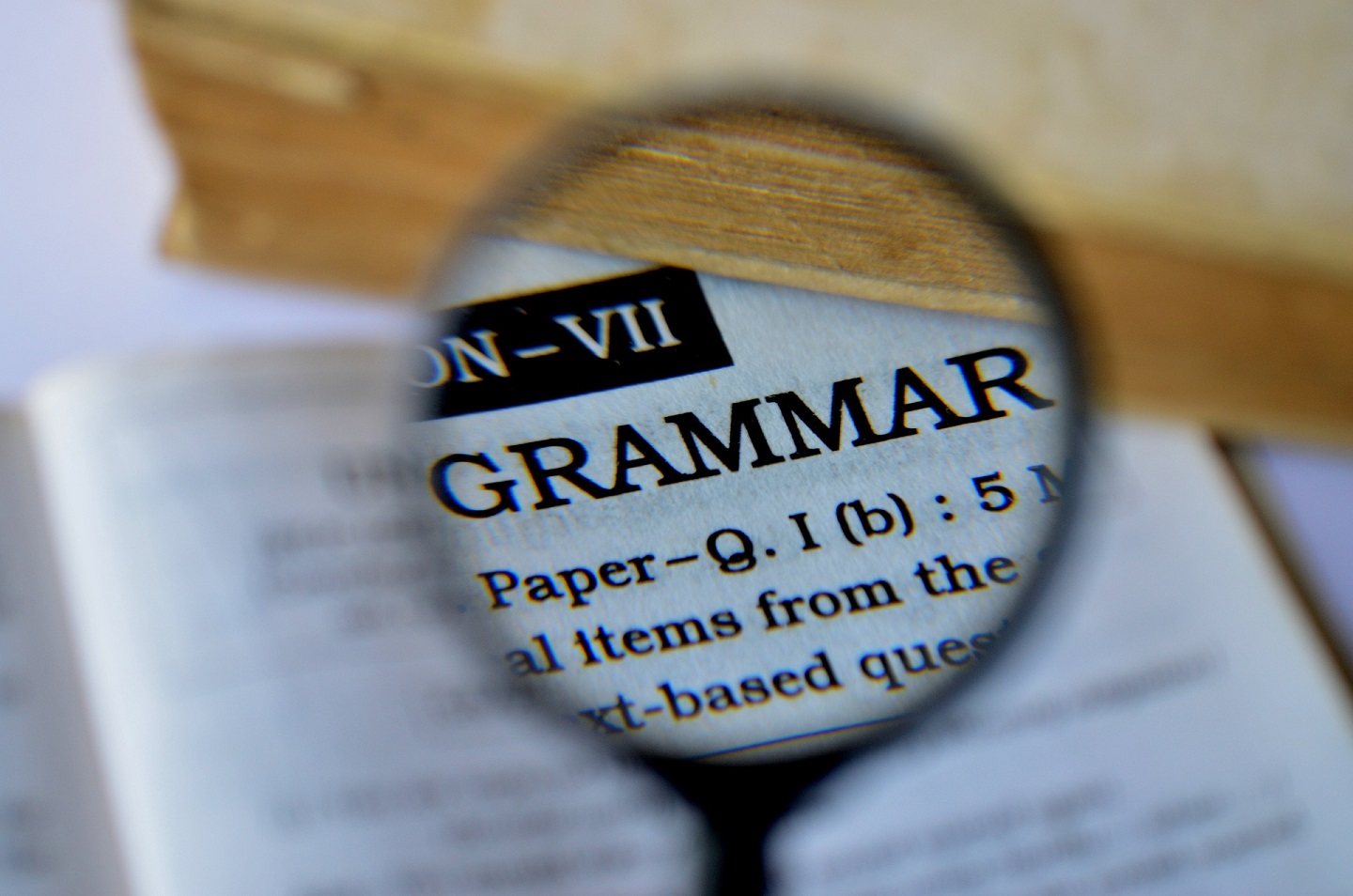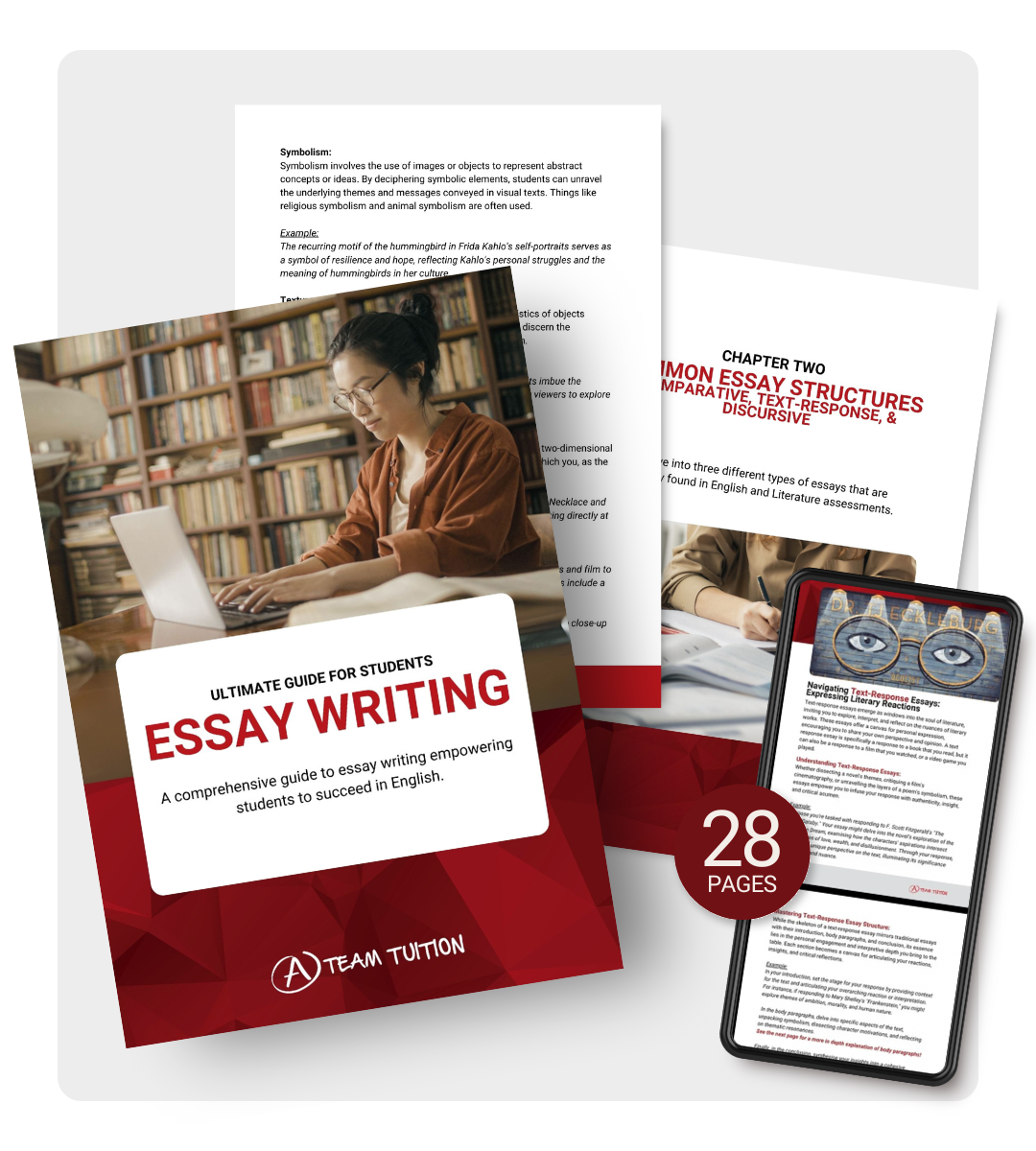
- TEFL Internship
- TEFL Masters
- Find a TEFL Course
- Special Offers
- Course Providers
- Teach English Abroad
- Find a TEFL Job
- About DoTEFL
- Our Mission
- How DoTEFL Works

Forgotten Password

- 17 Types of Essays: Examples and Quick Guide
- Learn English
- James Prior
- No Comments
- Updated November 9, 2024

Knowing how to write an essay is a key skill that can benefit you in multiple areas of life. From school life to academia, and later on in the workplace, if you possess good essay-writing skills you can truly get ahead of the pack. However, there can be a number of different types of essays you may need to write. It’s therefore important to be aware of them so that you know how to write them and when you might use them.
In this article, we take a look at 17 common types of essays that you might need to write.
Table of Contents
What are Essays?
An essay is a written composition that presents a coherent and organized argument or exploration of a particular topic. It is a form of communication that allows individuals to express their thoughts, ideas, and perspectives on a subject.
Typically, an essay consists of an introduction, body paragraphs, and a conclusion:
- The introduction introduces the main idea or thesis statement.
- The body paragraphs elaborate on and support the thesis.
- The conclusion summarizes the key points and leaves a lasting impression on the reader.
Essays come in various forms, such as narrative, descriptive, expository, persuasive, and more. Each type of essay serves a unique purpose in conveying information or persuading the audience.
With that in mind let’s take a look at 17 types of essays you could write.
17 Types of Essays
Here are 17 types of essays that you might need to write:
Narrative Essay
- Purpose: To tell a story or recount a personal experience
- Features: Use of vivid details, chronological structure, and a first-person point of view.
A narrative essay is a form of writing that recounts a personal experience or tells a story. In this type of essay, the author uses vivid language, descriptive details, and often a chronological structure to engage the reader and convey a specific message or theme.
The primary purpose of a narrative essay is to entertain, engage, and immerse the audience in a compelling narrative. Through the lens of the author’s personal experience, readers gain insights into the emotions, perspectives, and lessons embedded in the story. Unlike other forms of essays that may focus on analysis or argumentation, a narrative essay emphasizes storytelling and the conveyance of a meaningful experience.
Techniques employed in crafting a compelling narrative essay often involve the use of sensory details and a well-structured plot that builds tension or tells a story and climaxes with a resolution. Narrative essays therefore present a great opportunity to exercise creativity and show off your writing skills, and you can include metaphors , analogies, imagery, and dialogue.
The inclusion of such elements resonate with readers’ emotions and contribute to the overall impact of a narrative essay, making it a powerful and evocative form of expression.
Learn more about how to write a narrative essay .
Narrative essays can be written in various contexts, both academic and personal. In an academic setting, educators may assign narrative essays to students to assess their ability to craft a coherent and engaging story while effectively communicating a central idea or lesson. Here you’ll often be given a narrative writing prompt and will be expected to follow this to create your essay.
Beyond the classroom, individuals may choose to write personal narratives or narrative essays as a means of self-expression, reflection, or sharing experiences with a broader audience. As narrative essays can be used to describe an experience, you may find yourself writing one for a job application or on a cover letter, for example.
Descriptive Essay
- Purpose: To paint a vivid picture of a person, place, object, or experience.
- Features: Detailed sensory descriptions, figurative language, and a focus on creating a sensory experience for the reader.
A descriptive essay is a piece of writing that aims to paint a vivid picture of a person, place, object, or experience through the use of sensory details and expressive language.
The primary purpose of a descriptive essay is to engage the reader’s senses through descriptive writing, immersing them in the depicted scene and evoking their imagination to picture what is being described. A descriptive essay should prioritize creating a detailed and immersive portrayal of the subject, allowing the reader to visualize and feel the subject through the author’s words.
Techniques employed in writing a compelling descriptive essay often include the use of sensory language, vivid imagery, and figurative expressions. The careful selection of adjectives to describe the person , place, or thing, and the strategic arrangement of details contribute to the overall impact of the essay, allowing readers to not only visualize but also emotionally connect with the subject being described. You can also utilize similes , metaphors, and personification to bring inanimate objects or abstract concepts to life.
Descriptive essays can be used in various scenarios where a detailed depiction is required to convey a specific message or emotion. In academic settings, students may be tasked with crafting descriptive essays to enhance their observational and expressive skills. Beyond academia, professionals may utilize descriptive essays in various fields such as marketing, journalism, or creative writing, where creating a vivid and memorable impression is crucial.
In practical terms, a descriptive essay might be required when articulating the ambiance of a historical site, describing the features of a product in a marketing context, or conveying the emotional nuances of a personal experience.
Expository Essay
- Purpose: To explain, inform, or describe a concept or process.
- Features: Clear and concise writing, logical organization, and the use of evidence to support explanations.
An expository essay is a type of writing that aims to explain or inform by presenting facts, clarifying concepts, or describing processes.
The purpose of an expository essay is to provide a clear and straightforward analysis of a topic, devoid of the writer’s personal opinions or emotions. It serves as a tool for conveying information in a concise and organized manner, making complex subjects more understandable for the reader. In an expository essay, the author uses evidence, examples, and logical explanations to illuminate the chosen subject, fostering a deeper understanding of the topic at hand.
The key to writing effective expository essays lies in the clear and logical presentation of information. You should sequentially organize your ideas, using transitions to guide the reader through the flow of information. Clarity and simplicity of language are paramount, ensuring that the audience comprehends the subject without unnecessary complexity or ambiguity.
Techniques for successfully writing expository essays therefore include defining key terms, using examples and evidence to support explanations, and ensuring a logical progression of ideas. Clarity is enhanced through the use of straightforward language, avoiding jargon or overly complex terminology. Additionally, breaking down complex concepts into manageable parts and providing real-world examples contribute to the effectiveness of an expository essay, making the information accessible to a broad audience.
Expository essays are commonly required in academic settings, where students are tasked with explaining a particular concept, exploring a historical event, or illustrating a scientific process. Professionals in various fields may also engage in expository writing when preparing reports, manuals, or informative documents.
In practical terms, you might need to write an expository essay when explaining the steps of a technical process, outlining the characteristics of a specific phenomenon, or providing an analysis of historical events. In this sense, they are very much objective and there is a big difference between expository and argumentative essays (which are subjective).
We’ll take a look at argumentative essays next.
Argumentative Essay
- Purpose: To present a claim or position on a controversial issue and persuade the reader to adopt that viewpoint or take a specific action.
- Features: Clear thesis statement, evidence-supported arguments, addressing counterarguments, a logical structure, and a formal and objective tone, focusing on logical reasoning rather than personal feelings.
An argumentative essay is a form of writing where the author presents a claim or position on a controversial issue and supports it with evidence and reasoning. The purpose of an argumentative essay is to persuade the reader to accept the author’s viewpoint or take a specific action.
Unlike some other essay types, an argumentative essay encourages the writer to express their opinions and take a stance on a particular subject. It involves presenting a clear thesis statement, providing evidence to support the claim, and addressing counterarguments to strengthen the overall persuasiveness of the essay.
Effective argumentative writing involves conducting thorough research to gather relevant evidence, presenting a strong and clear thesis statement, anticipating and addressing counterarguments, and structuring the essay in a logical and persuasive manner. Additionally, incorporating credible sources and employing a confident and assertive tone contribute to the overall impact of the argumentative essay.
You can use techniques such as presenting statistical data, quoting experts, and using logical reasoning to build a persuasive case. It’s essential to remain focused on the central argument and to maintain a respectful tone when addressing opposing views. By carefully constructing the argument and providing well-reasoned support, you can effectively convey your perspective and encourage readers to consider and possibly adopt your viewpoint.
You might need to write argumentative essays in various contexts, including academic assignments, debates, or discussions on societal issues.
In academic settings, students often encounter argumentative essays as assignments that assess their critical thinking and persuasive writing skills.
In real-world scenarios, professionals may engage in writing argumentative essays when advocating for a particular policy, expressing a viewpoint on social issues, or contributing to public discourse. They are commonly used for expressing a viewpoint on topics such as environmental issues, social justice, or political ideologies.
Learn more about how to write an argumentative essay.
Persuasive Essay
Purpose: To convince the reader to adopt a particular viewpoint or take a specific action by presenting a compelling argument supported by evidence, reasoning, and emotional appeal.
Features: Clear and assertive thesis statement, emotional appeals, addressing counterarguments, and a persuasive tone. Persuasive essays often incorporate rhetorical devices and aim to create a connection with the reader.
A persuasive essay is a type of essay where the author aims to convince the reader to adopt a particular viewpoint or take a specific action. The purpose of a persuasive essay is to present a compelling argument supported by evidence, reasoning, and emotional appeal. The writer takes a clear stance on a controversial issue, presents their arguments persuasively, and seeks to sway the audience toward their perspective using persuasive techniques to influence the reader’s beliefs or behaviors.
Techniques for writing an effective persuasive essay involve clearly stating a strong thesis or position, providing evidence to support the argument, addressing counterarguments, and using rhetorical devices to enhance persuasive appeal. You can employ methods such as appealing to the reader’s emotions, establishing credibility, and organizing the essay logically and persuasively to maximize the impact and effectiveness of their persuasion.
By utilizing techniques that emphasize clarity and conviction, such as crafting a compelling introduction, using persuasive language, and organizing the essay in a way that builds a persuasive case, you can effectively influence the reader’s perspective and encourage them to adopt the proposed viewpoint or take the suggested action.
You might need to write a persuasive essay in various situations, such as academic assignments, debates, or discussions on societal issues.
In educational settings, students are often tasked with crafting persuasive essays to demonstrate their ability to build a strong argument and persuade others. Professionals may also engage in persuasive writing when advocating for a particular policy, presenting a business proposal, or contributing to public discourse. This could be advocating for environmental conservation measures, or persuading the audience to support a specific social cause, for example.
What’s the difference between persuasive and argumentative essays?
It’s important to note that persuasive essays are different from argumentative essays. While they share similarities, they differ in their overall approach and purpose. Both types of essays aim to convince the reader of a particular viewpoint, but they employ distinct strategies and approaches.
In a persuasive essay, the primary objective is to sway the reader’s beliefs or actions by using emotional appeals and connecting on a personal level. The tone is subjective, and the writer may openly express personal opinions and experiences. Persuasive essays may incorporate anecdotes and focus on creating a strong emotional impact to support the main argument.
On the other hand, argumentative essays prioritize presenting a well-supported argument through logical reasoning and evidence. The focus is on critically analyzing the topic, and the tone is more formal and objective. Argumentative essays actively engage with counterarguments, addressing opposing views and demonstrating a comprehensive understanding of the complexities involved. While emotional appeals may be present, they take a backseat to the emphasis on a structured, evidence-based approach.
In essence, the key distinction lies in the balance between emotion and logic: persuasive essays tilt more towards emotional appeals and personal opinions, while argumentative essays lean towards logical reasoning, evidence, and a more objective tone.
Now that we’ve compared and contrasted persuasive and argumentative essays, let’s move on to a compare and contrast essay!
Compare and Contrast Essay
- Purpose: To analyze the similarities and differences between two or more subjects.
- Features: Clear identification of subjects being compared or contrasted, a balanced presentation of similarities and differences, and a conclusion that synthesizes the analysis.
A compare and contrast essay is where the author examines the similarities and differences between two or more subjects. The purpose of compare and contrast essays is to highlight the key characteristics or qualities of the chosen subjects and provide a comprehensive understanding of their relationships. In this type of essay, the writer typically explores both the shared elements and the distinctive features, presenting a balanced analysis. The ultimate goal is to allow the reader to understand the nuances and connections between the subjects, fostering a deeper appreciation of their similarities and differences.
Techniques for writing an effective compare and contrast essay involve identifying the key points of comparison, organizing the information in a coherent structure, and using clear and concise language. You can employ methods such as listing similarities and differences, or create a point-by-point structure to enhance the clarity and readability of the essay.
By utilizing techniques that emphasize the connections and distinctions, such as creating a well-structured outline and selecting clear and relevant examples, you can provide the reader with a comprehensive understanding of the subjects under consideration.
You might need to write a compare and contrast essay in various scenarios, such as academic assignments, literature reviews, or analytical discussions. In educational settings, students are often tasked with comparing and contrasting different literary works, historical events, societal features, or scientific concepts. You could be tasked with exploring the cultural similarities and differences between different societies, for instance.
Professionals may write compare and contrast essays when analyzing market trends, evaluating potential solutions to a problem, or presenting a comprehensive overview of various products or strategies. For example, a compare and contrast essay might be necessary when examining the advantages and disadvantages of different technologies, or analyzing the characteristics of two competing products.
Analytical Essay
- Purpose: To analyze a piece of literature, film, artwork, or another subject.
- Features: In-depth analysis, interpretation of the subject, evidence-based arguments, and a focus on uncovering the deeper meaning.
An analytical essay is where the author examines a topic in detail, breaking it down into its components and evaluating the relationships between these parts. The purpose of an analytical essay is to explore the intricacies of a subject, understand its underlying elements, and present a thorough analysis.
An analytical essay does not solely aim to persuade or inform but focuses on dissecting a topic, providing insights, and offering a considered interpretation. The writer often critically examines the evidence, patterns, or themes within the subject to form a comprehensive and well-supported analysis.
By utilizing techniques that emphasize critical thinking, such as providing a clear thesis statement, incorporating relevant evidence, and offering a logical progression of analysis, the writer can effectively convey a deep understanding of the subject and contribute valuable insights to the reader.
Techniques for writing an effective analytical essay therefore involve breaking down the subject into its constituent parts, critically evaluating each component, and presenting a coherent and well-structured argument. You can use methods such as conducting in-depth research, identifying patterns or trends, and providing evidence to support your analysis, contributing to the overall strength of the essay.
You might need to write an analytical essay for academic assignments, literature reviews, or critical assessments. In academic settings, students are often required to write analytical essays to demonstrate their ability to engage critically with course materials. This could involve analyzing the themes in a piece of literature, critically evaluating the impact of a scientific experiment, or analyzing the causes and effects of historical events.
Professionals may also engage in analytical writing when conducting research, evaluating business strategies, or critically assessing the effectiveness of policies.
Cause and Effect Essay
- Purpose: To explore the relationship between events, identifying the cause(s) and effect(s).
- Features: Clear presentation of cause-and-effect relationships, logical organization, and the use of supporting evidence.
A cause and effect essay is where the author explores the reasons (causes) behind a particular phenomenon and the consequences (effects) that result from it. The purpose of a cause and effect essay is to analyze the relationships between various events or factors, demonstrating how one event leads to another. In cause and effect essays, the writer aims to uncover the underlying connections and demonstrate the cause-and-effect relationship between the chosen subjects. By presenting a clear cause-and-effect chain, it helps the reader understand the complexities of the topic and the interplay between different elements.
Techniques for writing an effective cause and effect essay therefore involve identifying the key causes and effects, organizing the information in a logical structure, and using clear and concise language. You should emphasize clarity and coherence, such as establishing a clear thesis statement, providing evidence to support each cause and effect, and ensuring a logical progression of ideas. It’s also important to provide examples to support your analysis and ensure a clear presentation of the cause-and-effect relationships to enhance the persuasiveness of the essay.
You might need to write a cause and effect essay in academic assignments, scientific research, or discussions on social issues. In educational settings, students often encounter cause and effect essays as assignments that assess their ability to analyze relationships between different events, phenomena, or concepts.
For example, a cause and effect essay might be necessary when examining the impact of social media on mental health, analyzing the consequences of climate change, or exploring the reasons behind a specific historical event. You can check out some cause and effect essay topics here .
Professionals may engage in this type of writing when examining the impact of business strategies, investigating the causes of environmental issues, or assessing the consequences of policy decisions.
Critical Essay
- Purpose: To critique or evaluate a work of literature, art, or another subject.
- Features: Critical analysis, examination of the strengths and weaknesses of the subject, and the presentation of a well-reasoned evaluation.
A critical essay is a form of writing where the author evaluates, interprets, and analyzes a piece of work, such as a book, film, artwork, or a specific topic. The purpose of a critical essay is to offer an informed opinion, supported by evidence, on the strengths and weaknesses of the subject under scrutiny. It is written from the writer’s point of view and the writer not only expresses their viewpoint but also provides a thoughtful analysis of the chosen work.
Overall, the critical essay aims to explore the deeper meaning, themes, or implications of the subject and contribute to a broader understanding or discussion.
Techniques for writing an effective critical essay involve conducting thorough research to understand the subject, presenting a clear thesis statement that reflects the main argument, and providing evidence to support critical analysis. When writing critical essays, you should try to offer a balanced evaluation and present your opinions in a well-organized and coherent manner to enhance the impact and persuasiveness of the essay.
By utilizing techniques that emphasize a thoughtful and balanced analysis, such as considering multiple perspectives, providing specific examples, and maintaining a clear focus on the central argument, you can effectively convey your critical insights and get the reader on board with your ideas.
You might need to write a critical essay in academic assignments, literary reviews, or discussions on cultural topics. In educational settings, students often encounter critical essays as assignments that assess their ability to engage critically with literature, art, or theoretical concepts where they are asked to provide their opinions.
Professionals may also engage in critical writing when evaluating the impact of business strategies, reviewing a product, critiquing research studies, or providing insights into cultural phenomena.
Definition Essay
- Purpose: To provide a detailed explanation and understanding of a particular concept or term.
- Features: A precise and well-defined thesis, clear and concise definitions, and the exploration of different aspects of the concept.
A definition essay is a form of writing where the author provides an in-depth explanation of the meaning of a particular term or concept. The purpose of a definition essay is to clarify the understanding of a chosen term by delving into its various aspects, including its history, usage, and different interpretations.
Unlike some other types of essays where terms can be briefly explained, a definition essay goes beyond a basic dictionary definition, aiming to offer a comprehensive understanding and interpretation of the term. The writer may explore the term’s origin, provide examples, and discuss how it is used in different contexts to give the reader a nuanced and enriched understanding.
Techniques for writing an effective definition essay involve providing a clear and precise definition at the outset, using examples and illustrations to enhance understanding, and organizing the essay in a logical and coherent manner. Writers may also consider exploring the term’s historical or cultural context to offer a comprehensive perspective, ensuring that the reader gains a nuanced understanding of the term under consideration.
You might need to write a definition essay in academic assignments, discussions on cultural concepts, or clarifying terms in specialized fields. In educational settings, students often encounter definition essays as assignments that assess their ability to analyze and communicate the complexities of a term.
Professionals may engage in definition writing when providing clear explanations in technical documentation, defining key terms in research papers, or contributing to the development of industry-specific glossaries.
Reflective Essay
- Purpose: To reflect on personal experiences and explore their impact on the writer’s life. The goal is to provide insight into feelings, growth, and learning.
- Features: Use introspection, share personal thoughts and experiences, and present structured reflections. Reflective essays emphasize personal insights gained from experiences.
A reflective essay is a type of writing where the author reflects on a personal experience, thought, or emotion and explores its impact on their life or understanding. It is a personal essay that provides insight into the writer’s feelings, growth, and learning process. Unlike other types of essays that may focus on external analysis or persuasion, a reflective essay centers on self-examination and introspection. The writer shares their thoughts, experiences, and the lessons gained, aiming to create a connection with the reader through personal reflection.
Techniques for writing an effective reflective essay involve being open and honest about personal experiences, emotions, and thoughts. You can use descriptive language to convey the details of the experience, reflect on their reactions and feelings, and articulate the insights gained from the experience. By employing techniques that emphasize self-awareness and thoughtful analysis, you can create a compelling reflective essay that resonates with the reader and invites them to contemplate their own experiences.
You might need to write a reflective essay in various situations, such as academic assignments, personal journals, or self-assessment in professional development.
In educational settings, students often encounter reflective essays as assignments that encourage them to reflect on their learning experiences, personal challenges, or the impact of certain events. his could be a life-changing event, evaluating personal growth during a project, or exploring the lessons learned from a challenging experience.
Professionals may engage in reflective writing as part of career development, project evaluations, or when documenting personal and professional growth.
Learn more about how to write a reflective essay .
Opinion Essay
Purpose: To express and support the writer’s personal opinion on a specific topic.
Features: Clear articulation of the writer’s viewpoint, use of persuasive language, and supporting evidence or examples.
An opinion essay is a form of writing that allows the author to share their personal perspective on a particular subject. In this type of essay, the writer expresses their opinions and provides supporting arguments to convince the reader of the validity of their viewpoint.
The primary purpose of an opinion essay is to convey a strong and well-reasoned personal stance on an issue. Writers employ persuasive language and provide evidence, examples, or anecdotes to substantiate their opinions. Unlike expository essays that aim for objectivity, opinion essays encourage the use of emotional appeals and subjective reasoning to sway the reader towards the writer’s point of view.
Crafting a compelling opinion essay involves clearly stating your opinion in the introduction, presenting supporting arguments in the body paragraphs, and summarizing the main points in the conclusion. It is crucial to acknowledge counterarguments and address them to strengthen the overall persuasiveness of the essay.
Opinion essays are commonly assigned in educational settings to assess students’ ability to express and defend their viewpoints. Additionally, they are prevalent in various forms of media where writers share their opinions on current events, social issues, or cultural phenomena.
For and Against Essay
Purpose: To present arguments in favor of and against a particular issue and reach a balanced conclusion.
Features: Clear presentation of opposing viewpoints, balanced structure, and an unbiased analysis of arguments.
A for and against essay, also known as a pros and cons essay, is a type of writing that examines both sides of an issue before arriving at a balanced conclusion. The essay typically starts by presenting the arguments in favor of a particular viewpoint, followed by the arguments against it.
The primary purpose of a for and against essay is to provide a comprehensive exploration of an issue, weighing the pros and cons to help the reader understand the complexities surrounding the topic. This type of essay requires the writer to maintain objectivity and avoid favoring one side over the other.
To craft an effective for and against essay, it’s essential to clearly outline the arguments on both sides and maintain a logical and coherent structure. Writers should aim to present each perspective fairly, offering evidence and examples to support each point. The conclusion should synthesize the presented arguments and may include a personal reflection on the issue.
For and against essays are commonly assigned in academic settings to enhance critical thinking skills and the ability to analyze multiple perspectives on a given topic. They are also used in professional contexts where a balanced evaluation of competing ideas is necessary.
Problem-Solution Essays
Purpose: To identify a problem, propose effective solutions, and advocate for their implementation.
Features: Clear articulation of the problem, well-researched solutions, and a persuasive argument for implementation.
A problem-solution essay is a type of writing that addresses a specific issue, outlines the underlying problems, and proposes viable solutions. This essay aims to persuade the reader that the suggested solutions are practical and effective in addressing the identified problem.
The primary purpose of a problem-solution essay is to engage the reader in understanding the severity of a problem and to present well-researched and feasible solutions. Writers often begin by clearly defining the problem, providing relevant statistics or examples to emphasize its significance.
The body of the essay explores potential solutions, discussing the advantages and disadvantages of each. It is crucial to present evidence and reasoning to support the proposed solutions, demonstrating their practicality and effectiveness. The conclusion typically restates the importance of addressing the problem and reinforces the viability of the proposed solutions.
Problem-solution essays are commonly assigned in academic and professional settings where critical thinking and analytical skills are valued. They are particularly relevant in fields such as public policy, environmental studies, and social sciences.
Proposal Essays
Purpose: To suggest a specific course of action or a plan and persuade the audience to accept it.
Features: Clear presentation of the proposal, detailed plan of action, and persuasive arguments for its implementation.
A proposal essay is a type of writing that suggests a specific course of action or plan and aims to persuade the audience to accept and support the proposal. This type of essay requires a clear presentation of the proposed idea, a detailed plan outlining how it will be implemented, and persuasive arguments supporting its feasibility and benefits.
The primary purpose of a proposal essay is to convince the reader that the proposed idea is worthwhile and that its implementation would bring positive outcomes. The writer begins by introducing the proposal, providing background information, and establishing the significance of the suggested course of action.
The body of the essay elaborates on the details of the proposal, outlining the steps involved in its implementation and addressing potential concerns. Writers should use persuasive language, supported by evidence and examples, to demonstrate the practicality and effectiveness of the proposed plan.
Learn more about how to write a proposal essay .
Proposal essays are commonly assigned in academic and professional settings where the ability to formulate and present actionable ideas is essential. They are prevalent in fields such as business, marketing, and public administration, where individuals are often required to propose new initiatives, projects, or solutions.
Research Essay
- Purpose: To present the findings of original research on a specific topic.
- Features: Extensive research, proper citation of sources, a clear thesis statement, and a structured presentation of research findings.
A research essay is a type of writing where the author conducts in-depth research on a specific topic and presents their findings in a structured and coherent manner. The purpose of a research essay is to explore, analyze, and synthesize existing knowledge on a subject, providing insights and contributing to the existing body of information.
Research essays rely heavily on evidence from various sources, such as academic articles, books, and reputable publications, to support the writer’s claims and arguments. The focus is on presenting a well-researched and informed perspective, and the essay typically includes citations to acknowledge the sources used. In this sense, it’s essentially an academic essay.
Techniques for writing an effective research essay involve conducting thorough research to gather relevant and credible sources, organizing the information in a logical and coherent structure, and properly citing sources to give credit to the original authors. Writers may also need to critically evaluate the quality of sources, synthesize information from diverse perspectives, and present a well-reasoned argument based on the available evidence.
You might need to write a research essay in academic assignments, literature reviews, or contributions to scholarly discussions. In educational settings, students often encounter research essays as assignments that assess their ability to conduct independent research, critically analyze information, and present a coherent argument.
Professionals may engage in research essay writing when contributing to academic journals, conducting market research, or providing comprehensive analyses in various fields. This could include exploring the impact of new technologies, analyzing trends in a particular industry, or contributing to academic discussions on a specific scientific phenomenon.
Application Essay
- Purpose: To showcase the writer’s personality, experiences, and suitability for a particular academic program or job.
- Features: Personal reflection, storytelling, and a focus on demonstrating the writer’s qualities and aspirations.
An application essay is a written piece that individuals submit as part of their application to educational institutions, job positions, or various programs.
The purpose of an application essay is to provide the applicant with an opportunity to showcase their personality, experiences, and qualifications in a way that goes beyond what can be conveyed through academic records or resumes. In this type of essay, applicants often share personal anecdotes, reflect on their achievements, highlight their academic career, and express their aspirations, allowing the evaluators to gain a deeper understanding of the individual beyond the formal application materials.
Techniques for writing an effective application essay involve highlighting personal experiences that demonstrate qualities relevant to the application, such as leadership, resilience, or a commitment to a particular field.
You should aim to make a memorable and positive impression by expressing your genuine enthusiasm for the opportunity and aligning your personal and professional goals with the objectives of the institution or program you are applying to. This is particularly true for work or college application essays. Additionally, clarity, conciseness, and a well-structured narrative contribute to the overall effectiveness of an application essay.
You may need to write an application essay when applying to colleges, universities, job positions, internships, scholarships, or specialized programs. The essay serves as a crucial component of the application process, providing you with a platform to distinguish yourself from others with similar qualifications.
When Might You Need to Write an Essay?
Essays play a crucial role in both academic and professional settings. In educational institutions, students often encounter essays as a common method of assessment. Professors use essays to evaluate students’ understanding of a topic, their critical thinking skills, and their ability to communicate ideas effectively.
Similarly, in the workplace, professionals may be required to write essays as part of reports, proposals, or documentation. The ability to articulate thoughts clearly and persuasively through essays is a valuable skill that extends beyond the classroom, contributing to success in various fields.
One notable aspect of essay writing is the variability in topic selection. Depending on the context, you may have the freedom to choose your essay topic or be assigned one. In some instances, educators or employers provide specific prompts or questions, guiding the direction of your essay. On the other hand, there are situations where you have the autonomy to select a topic based on personal interest or expertise.
This means that you’ll be required to adapt your essay writing approach based on the given circumstances and type of essay, whether it involves exploring a predetermined theme or delving into a subject of personal choice.
Conclusion: Start Writing
That completes our run-through of the different essay types. Whatever you’re writing, try to keep the reader interested and build an essay structure that is easy to follow. If you can do those two things, you’ll be well on the way to essay writing success.
- Recent Posts
- In-Class TEFL Courses vs Online TEFL Courses: Which to Pick? - November 25, 2024
- 9 Best TEFL Courses Abroad in 2025 - November 22, 2024
- 27 Christmas Idioms With Their Meanings & Examples - November 4, 2024
More from DoTEFL


Technology or Technologies? What is the Plural of Technology?
- Updated July 9, 2023

15 Best Free Grammar Checkers in 2024
- Updated September 19, 2024

How to Teach English to Young Learners: 9 Helpful Strategies
- Updated May 2, 2024

39 English Words With Multiple Meanings

Names of 93+ Kitchen Utensils in English With Their Uses
- Updated September 13, 2024

17 of The Longest English Words: Can You Pronounce Them?!
- Updated October 1, 2024
- The global TEFL course directory.

- Areas of Study
- Accessible Human-Centered Computing
- American Sign Language
- Art and Media Design
- Communication Studies
- Criminal Justice
- Data Science
- Deaf Studies
- Early Intervention Studies
- Educational Neuroscience
- Hearing, Speech, and Language Sciences
- Information Technology
- International Development
- Interpretation and Translation
- Linguistics
- Mathematics
- Philosophy and Religion
- Physical Education & Recreation
- Public Affairs
- Public Health
- Sexuality and Gender Studies
- Social Work
- Theatre and Dance
- World Languages and Cultures
- B.A. in American Sign Language
- B.A. in Biology
- B.A. in Communication Studies
- B.A. in Communication Studies for Online Degree Completion Program
- B.A. in Deaf Studies
- B.A. in Deaf Studies for Online Degree Completion Program
- B.A. in Education with a Specialization in Early Childhood Education
- B.A. in Education with a Specialization in Elementary Education
- B.A. in English
- B.A. in English for Online Degree Completion Program
- B.A. in Government
- B.A. in Government with a Specialization in Law
- B.A. in History
- B.A. in Interdisciplinary Spanish
- B.A. in International Studies
- B.A. in Mathematics
- B.A. in Philosophy
- B.A. in Psychology
- B.A. in Psychology for Online Degree Completion Program
- B.A. in Social Work (BSW)
- B.A. in Sociology with a concentration in Criminology
- B.A. in Theatre Arts: Production/Performance
- B.A. or B.S. in Education with a Specialization in Secondary Education: Science, English, Mathematics or Social Studies
- B.S. in Accounting
- B.S. in Accounting for Online Degree Completion Program
- B.S. in Biology
- B.S. in Business Administration
- B.S. in Business Administration for Online Degree Completion Program
- B.S. in Data Science
- B.S. in Information Technology
- B.S. in Mathematics
- B.S. in Physical Education and Recreation
- B.S. in Public Health
- B.S. in Risk Management and Insurance
- General Education
- Honors Program
- Peace Corps Prep program
- Self-Directed Major
- M.A. in Counseling: Clinical Mental Health Counseling
- M.A. in Counseling: School Counseling
- M.A. in Deaf Education
- M.A. in Deaf Education Studies
- M.A. in Deaf Studies: Cultural Studies
- M.A. in Deaf Studies: Language and Human Rights
- M.A. in Early Childhood Education and Deaf Education
- M.A. in Early Intervention Studies
- M.A. in Elementary Education and Deaf Education
- M.A. in International Development
- M.A. in Interpretation: Combined Interpreting Practice and Research
- M.A. in Interpretation: Interpreting Research
- M.A. in Linguistics
- M.A. in Secondary Education and Deaf Education
- M.A. in Sign Language Education
- M.S. in Accessible Human-Centered Computing
- M.S. in Speech-Language Pathology
- Master of Public Administration
- Master of Social Work (MSW)
- Au.D. in Audiology
- Ed.D. in Transformational Leadership and Administration in Deaf Education
- Ph.D. in Clinical Psychology
- Ph.D. in Critical Studies in the Education of Deaf Learners
- Ph.D. in Hearing, Speech, and Language Sciences
- Ph.D. in Linguistics
- Ph.D. in Translation and Interpreting Studies
- Ph.D. Program in Educational Neuroscience (PEN)
- Psy.D. in School Psychology
- Individual Courses and Training
- National Caregiver Certification Course
- CASLI Test Prep Courses
- Course Sections
- Certificates
- Certificate in Educating Deaf Students with Disabilities
- Certificate in American Sign Language and English Bilingual Early Childhood Deaf Education: Birth to 5
- Certificate in Early Intervention Studies
- Certificate in Peer Mentor Training
- Certificate in Sexuality and Gender Studies
- Online Degree Programs
- ODCP Minor in Communication Studies
- ODCP Minor in Deaf Studies
- ODCP Minor in Psychology
- ODCP Minor in Writing
- University Capstone Honors for Online Degree Completion Program
Quick Links
- Plan a Visit
- Request Info
- PK-12 & Outreach
- NSO Schedule

Guide to Different Kinds of Essays
202.448-7036
An essay is a paper that discusses, describes or analyzes one topic. It can discuss a subject directly or indirectly, seriously or humorously. It can describe personal opinions, or just report information. An essay can be written from any perspective, but essays are most commonly written in the first person ( I ), or third person (subjects that can be substituted with the he, she, it, or they pronouns).
There are many different kinds of essays. The following are a some of the most common ones:
Descriptive Cause/Effect Argumentative Definition Narrative Critical Compare/Contrast Process
Descriptive:
Examples: A descriptive essay could describe . . .
The descriptive essay provides details about how something looks, feels, tastes, smells, makes one feel, or sounds. It can also describe what something is, or how something happened. These essays generally use a lot of sensory details. The essay could be a list-like description that provides point by point details. Or, it could function as a story, keeping the reader interested in the plot and theme of the event described.
Definition:
Examples: A definition essay may try and define . . .
A definition essay attempts to define a specific term. It could try to pin down the meaning of a specific word, or define an abstract concept. The analysis goes deeper than a simple dictionary definition; it should attempt to explain why the term is defined as such. It could define the term directly, giving no information other than the explanation of the term. Or, it could imply the definition of the term, telling a story that requires the reader to infer the meaning.
Compare/Contrast:
Examples:A compare/contrast essay may discuss . . .
The compare/contrast essay discusses the similarities and differences between two things, people, concepts, places, etc. The essay could be an unbiased discussion, or an attempt to convince the reader of the benefits of one thing, person, or concept. It could also be written simply to entertain the reader, or to arrive at an insight into human nature. The essay could discuss both similarities and differences, or it could just focus on one or the other. A comparison essay usually discusses the similarities between two things, while the contrast essay discusses the differences.
Cause/Effect:
Examples:A cause/effect essay may explain . . .
The cause/effect essay explains why or how some event happened, and what resulted from the event.
This essay is a study of the relationship between two or more events or experiences. The essay could discuss both causes and effects, or it could simply address one or the other. A cause essay usually discusses the reasons why something happened. An effect essay discusses what happens after a specific event or circumstance.
The example below shows a cause essay, one that would explain how and why an event happened.
If this cause essay were about a volcanic eruption, it might go something like this: “Pressure and heat built up beneath the earth’s surface; the effect of this was an enormous volcanic eruption.”
The next example shows an effect essay, one that would explain all the effects that happened after a specific event, like a volcanic eruption.
If this effect essay were about a volcanic eruption again, it might go something like this:
“The eruption caused many terrible things to happen; it destroyed homes, forests, and polluted the atmosphere.”
Examples:A narrative essay could tell of . . .
The narrative essay tells a story. It can also be called a “short story.” Generally, the narrative essay is conversational in style and tells of a personal experience. It is most commonly written in the first person (uses I ). This essay could tell of a single, life-shaping event, or simply a mundane daily experience.
Examples: A process essay may explain . . .
A process essay describes how something is done. It generally explains actions that should be performed in a series. It can explain in detail how to accomplish a specific task, or it can show how an individual came to a certain personal awareness. The essay could be in the form of step-by-step instructions, or in story form, with the instructions/explanations subtly given along the way.
Argumentative:
Examples: An argumentative essay may persuade a reader that . . .
An argumentative essay is one that attempts to persuade the reader to the writer’s point of view. The writer can either be serious or funny, but always tries to convince the reader of the validity of his or her opinion. The essay may argue openly, or it may attempt to subtly persuade the reader by using irony or sarcasm.
Examples: A critical essay may analyze . . .
A critical essay analyzes the strengths, weaknesses, and methods of someone else’s work. Generally, these essays begin with a brief overview of the main points of the text, movie, or piece of art, followed by an analysis of the work’s meaning. It should then discuss how well the author/creator accomplishes his/her goals and makes his/her points. A critical essay can be written about another essay, story, book, poem, movie, or work of art.
202-448-7036
At a Glance
- Quick Facts
- University Leadership
- History & Traditions
- Accreditation
- Consumer Information
- Our 10-Year Vision: The Gallaudet Promise
- Annual Report of Achievements (ARA)
- The Signing Ecosystem
- Not Your Average University
Our Community
- Library & Archives
- Technology Support
- Interpreting Requests
- Ombuds Support
- Health and Wellness Programs
- Profile & Web Edits
Visit Gallaudet
- Explore Our Campus
- Virtual Tour
- Maps & Directions
- Shuttle Bus Schedule
- Kellogg Conference Hotel
- Welcome Center
- National Deaf Life Museum
- Apple Guide Maps
Engage Today
- Work at Gallaudet / Clerc Center
- Social Media Channels
- University Wide Events
- Sponsorship Requests
- Data Requests
- Media Inquiries
- Gallaudet Today Magazine
- Giving at Gallaudet
- Financial Aid
- Human Resources
- Registrar’s Office
- Residence Life & Housing
- Safety & Security
- Undergraduate Admissions
- Graduate Admissions
- University Communications
- Clerc Center

Gallaudet University, chartered in 1864, is a private university for deaf and hard of hearing students.
Copyright © 2024 Gallaudet University. All rights reserved.
- Accessibility
- Cookie Consent Notice
- Privacy Policy
- File a Report
800 Florida Avenue NE, Washington, D.C. 20002

Complete Guide to the 10 Main Types of Essays for Students
Welcome to the wonderful world of essay writing! Throughout your academic journey, knowing how to express your thoughts, ideas and opinions through the medium of essay writing will be super important. Whether you’re dealing with an assignment for your English class or any other school subject, it’s crucial to understand the different types of essays and when to use them.

The 10 Main Essay Types Explained
1. narrative essays.
Purpose : Narrative essays weave stories, allowing writers to share personal experiences, lessons learned, or memorable moments, aiming to entertain or convey a particular message.
Usage : Often employed in personal statements for college or graduate school applications, where the goal is to provide a glimpse into the writer’s character.
Structure Example :
- Introduction : Captivate the reader’s attention with an engaging opening that hints at the central theme.
- Body : Chronicle the events in chronological order, utilising literary techniques such as metaphors, alliteration, and dialogue.
- Conclusion : Summarise the main point or highlight the significance of the narrative, reinforcing the central message.
2. Descriptive Essays
Purpose : To vividly depict a subject, be it a person, place, thing, or event, invoking sensory experiences and creating a vivid picture for the reader.
Usage : Ideal for creating a detailed portrayal without necessarily constructing a complete story; often used in travel writing or to enhance the understanding of a specific concept.
- Introduction : Set the scene and establish the focus, providing a clear overview of what the reader is about to experience.
- Body : Utilise vivid imagery, actions, thoughts, and emotions to immerse the reader, using strong action verbs and descriptive adjectives.
- Conclusion : Summarise and leave a lasting impression, emphasising the overall impact of the described subject.
3. Expository Essays
Purpose : Expository essays provide a neutral explanation of a topic, demonstrating the writer’s knowledge or expertise, with the goal of informing or educating the audience.
Usage : Frequently assigned by teachers to assess understanding without incorporating personal opinions; common in academic and informational contexts.
- Introduction : Introduce the topic with a clear thesis statement that outlines the specific aspect to be explored.
- Body : Present factual information, often citing sources for credibility, using clear and concise language.
- Conclusion : Summarise the main points without introducing personal biases, leaving the reader with a comprehensive understanding.
4. Definition Essays
Purpose : Definition essays define and analyse complex or abstract terms or ideas in-depth, aiming to provide clarity and insight.
Usage : Commonly found in academic and research settings, where the goal is to delve into the nuances of a particular concept.
- Introduction : Clearly define the term or idea to be explored, providing context for the audience.
- Body : Offer a detailed analysis, examples, and explanations, breaking down the components of the term.
- Conclusion : Summarise the key points and reiterate the definition, ensuring the audience grasps the full scope of the concept.
5. Process Essays
Purpose : Process essays explain how to do something or how something works, guiding the reader through a series of steps to achieve a specific outcome.
Usage : Employed for instructional purposes, suitable for topics ranging from recipes and DIY projects to scientific procedures.
- Introduction : Introduce the process to be described, setting the stage for the step-by-step guidance.
- Body : Sequentially detail each step, using transition words for clarity and logical progression.
- Conclusion : Summarise the process for reader retention, reinforcing the significance of the final outcome.
6. Compare and Contrast Essays
Purpose : Compare and contrast essays discuss the similarities and differences between two subjects, aiming to highlight unique aspects and foster a deeper understanding.
Usage : Common in academic settings for analytical comparison, frequently used in literature, history, or scientific analysis.
- Introduction : Present the subjects to be compared, providing a brief overview of their significance.
- Body : Devote paragraphs to similarities and differences, using clear transitions for smooth readability.
- Conclusion : Summarise the key points and highlight the significance of the comparison, drawing attention to the insights gained.
7. Argumentative Essays
Purpose : Argumentative essays convince the reader to adopt a particular viewpoint based on objective information, using logical reasoning and evidence.
Usage : Rely on facts rather than emotions to sway opinions; often found in academic settings and editorials.
- Introduction : Present the argument with a clear thesis, outlining the stance to be defended.
- Body : Provide factual evidence and counterarguments, presenting a well-rounded perspective.
- Conclusion : Summarise the key points and reinforce the chosen stance, leaving a lasting impression on the reader.
8. Persuasive Essays
Purpose : Persuasive essays aim to persuade readers to adopt a specific opinion or take a particular stance using facts and emotional appeals, aiming to evoke a personal connection.
Usage : Employ moral and emotional reasoning to connect with the reader, often found in opinion pieces and marketing.
- Introduction : Clearly state the opinion or stance to be supported, capturing the reader’s attention.
- Body : Present facts and emotional appeals, crafting a compelling narrative to strengthen the argument.
- Conclusion : Reinforce the argument and call the reader to action, leaving them with a sense of urgency or agreement.
9. Cause and Effect Essays
Purpose : Cause and effect essays detail the causal relationship between events or situations, explaining why certain events or circumstances led to others.
Usage : Examine the consequences and implications of specific actions or occurrences, frequently found in scientific, historical, or sociological contexts.
- Introduction : Clearly state the cause and effect relationship, providing context for the audience.
- Body : Elaborate on the features of the initiating event and its consequences, using evidence to support claims.
- Conclusion : Summarise the key cause-and-effect connections, emphasising their broader significance.
10. Critical Essays
Purpose : Critical essays provide an in-depth analysis and critique of a topic, often found in literature and humanities courses, testing students’ ability to think critically.
Usage : Assess the ability to think critically and identify evidence from a specific work that validates observations, common in literary analysis or art criticism.
- Introduction : Introduce the subject to be critiqued, providing context for the analysis.
- Body : Analyse and support opinions with evidence, diving into specific aspects of the subject.
- Conclusion : Summarise the critical points and reiterate the analysis, leaving the reader with a comprehensive understanding of the critique.
Need Help With Essay Writing? A Team Tuition Can Help!
Mastering these essay types is a journey, and seeking guidance is a wise first step. A Team Tuition offers private tutoring and mentoring services, empowering students to excel in essay writing and beyond. Whether it’s forming study groups or personalised sessions, enhancing your child’s academic experience is just a click away.
Consider signing up for A Team’s private tutoring and mentoring services to further enhance your child’s academic experience and reach their full potential. Contact us now to schedule your child’s first session and start achieving their academic goals!
Recent Posts
- How to Maintain Motivation for Your Child in Term 4
- Our Partner: Olympic Gold Medallist Cam McEvoy
- 7 Effective Time Management Tips For Students
- How to Write a Comparative Essay: Structure, Tips & Examples
- How to Analyse a Text for English Class: 7 Textual Analysis Tips
- Advice For Parents
- Foundations of Learning
- How to Succeed
- Neurodivergent Learning
- ATAR for University Admissions
- Career Paths
- High School Programs and Classes
- Transformation Stories

Download Our Ultimate Student's Guide To Essay Writing
In this free guide you will learn & receive:, key strategies to answer english tasks appropriately, strategies to expand your reading habits for academic success, how to go beyond the task with research and peer collaboration, strategies for writing comparative essays, how to effectively write discursive essays, breakdown of text-response essays, mastering visual techniques and text analysis for enhanced essay writing, privacy overview.

IMAGES
VIDEO